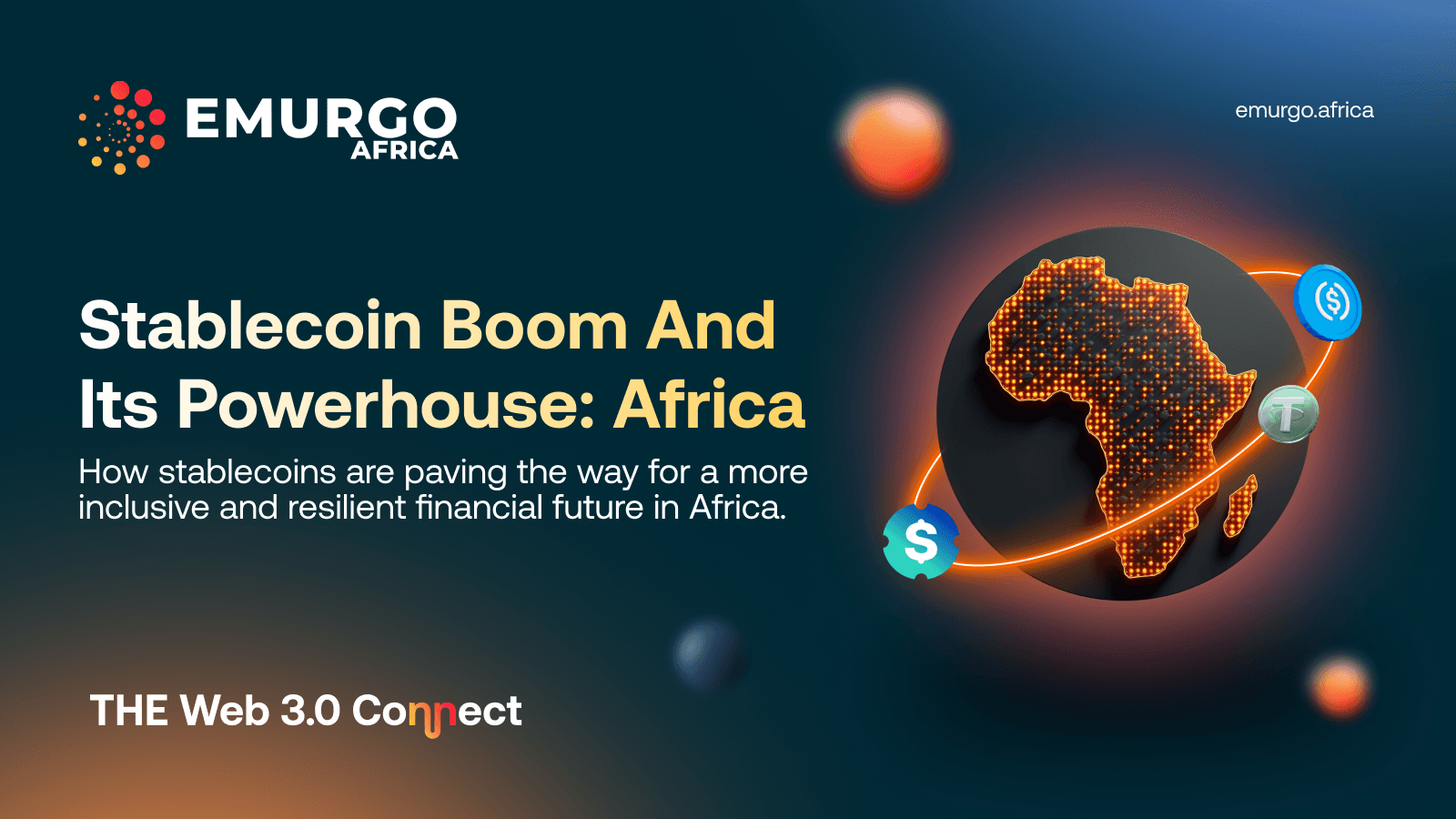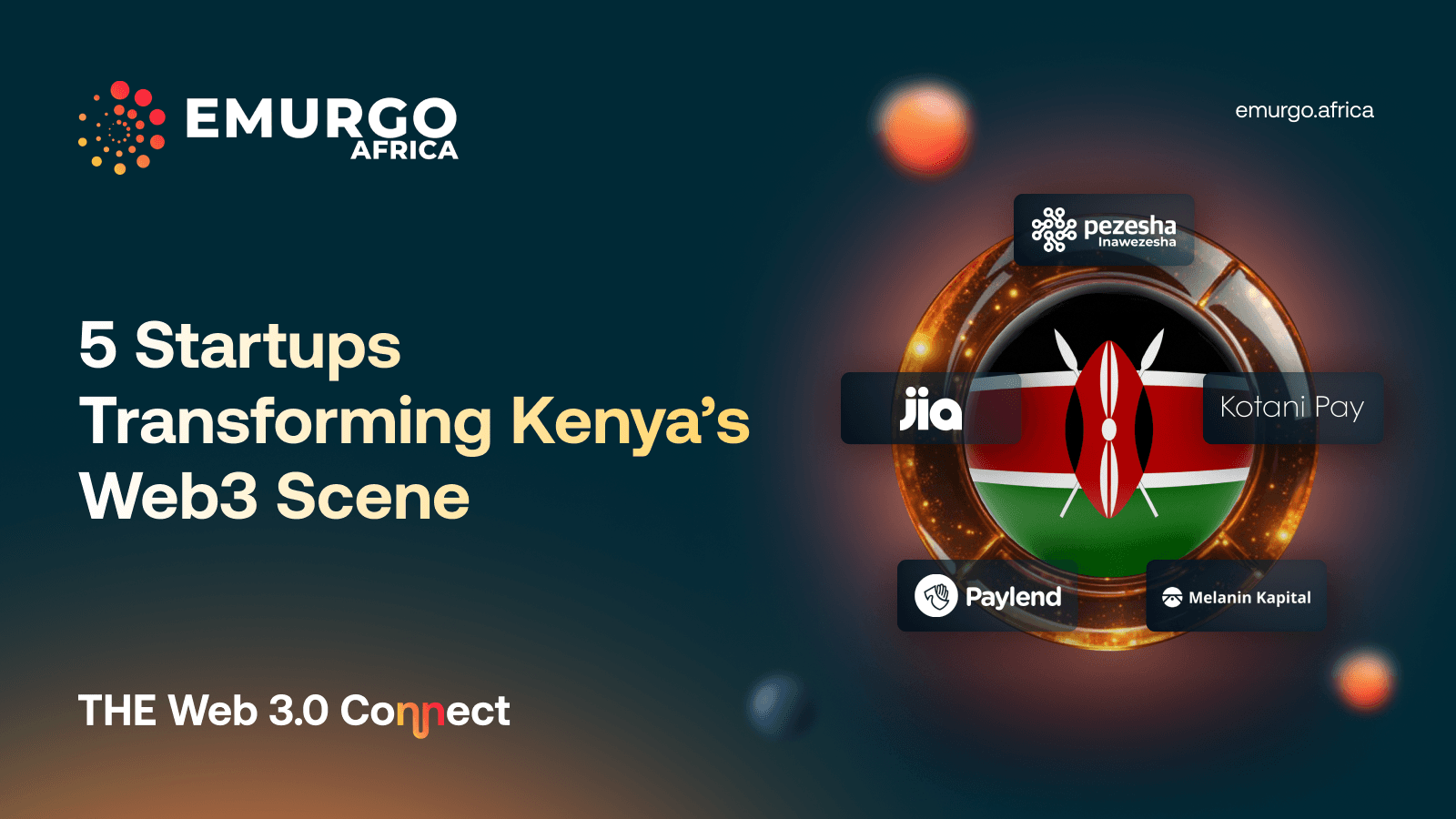By Shogo Ishida and Yosuke Yoshida, Co-CEOs, EMURGO Africa
Stablecoins, digital money typically pegged to fiat currencies like the US dollar, are rapidly becoming a preferred medium of exchange in Sub-Saharan Africa, a region grappling with volatile local currencies, inflation and limited access to traditional banking services.
There has been a rising demand for stablecoins in this region, especially for crypto trade, US dollar conversions, cross-border remittances, online purchases and savings, as revealed in our analysis below.
Key Takeaways:
- Africa is at the forefront of global stablecoin adoption.
- Nigeria is planning for a Naira stablecoin.
- South Africa sets the stage for stablecoin regulation.
- Mobile money is driving stablecoin-fiat exchanges in Africa.
Africa Leads Global Stablecoin Boom in 2024
Despite crypto market downturns in 2022 and 2023, stablecoin volumes have grown consistently across the world, according to a report sponsored by Visa that analyzed five countries - Nigeria, India, Brazil, Turkey and Indonesia.
The study, titled Stablecoins: The Emerging Market Story, reveals that more than 20 million wallet addresses in the world conduct stablecoin transactions on public blockchains every month.
In the first half of 2024 alone, stablecoins settled an estimated $2.6 trillion in value, projecting that to double by the end of the year. That slightly surpusses Itlay’s 2024 GDP ($2.3 trillion) while almost nears Africa’s 2023 GDP ($3.1 trillion).
More than 20 million wallet addresses, the report found out, conduct stablecoin transactions on public blockchains every month.
At a combined market capitalization of $155 billion, USDT (Tether) and USDC (USD Coin) are still the top stablecoins globally, with Coinmarketcap listing a total of 183 stablecoins with a combined market capitalization of $173 billion. Cardano’s stablecoin Anzens USDA is resuming launch, following partnership with crypto trading platform Encryptus.
One major reason for this rise is the fact that unlike cryptocurrencies, which are volatile, stablecoins are pegged to stable assets which reduce the risk of sudden value fluctuations, making them more attractive for everyday transactions, savings, and remittances.

SOURCE: Stablecoins: The Emerging Market Story 2024 Report
While there’s a general rise in the use of stablecoins across the globe as shown in the chart above, Africa is leading the way in the adoption of stablecoins, which have emerged as powerful tools in reshaping the continent's economic landscape and unlocking new opportunities for Web3 growth.
According to a report by FSD Kenya, stablecoin volume in Africa hit more than $30 billion, which is 50% of the total crypto volume attributed to Africa between June 2022 and July 2023.
Africa's unique economic challenges, such as dollar scarcity, inflation and currency depreciation coupled with its vibrant fintech ecosystem, relatively high smartphone and internet penetration, have driven the mass adoption of stablecoins.
This has bridged the gap in expensive dollar conversions and loss of value of local currencies, with stablecoins offering a digital alternative to traditional banking which takes days to complete cross-border transactions.
Mobile money services such as Kenya’s M-Pesa have integrated with platforms offering stablecoin-fiat exchanges such as Binance, offering financial services to individuals in underserved areas.
Stablecoins also reduce transaction costs, particularly for cross-border remittances. Traditional remittance services charge high fees, often exceeding 6% of transaction value, while stablecoins enable near-instant transfers at a fraction of the cost.
Due to these factors, as seen in the chart below, the value of stablecoin transactions in Africa, on average, surpasses the combined transactions of Bitcoin, Ether and altoins. This means African users find more utility while trading stablecoins than cryptocurrencies.

SOURCE: Chainalysis 2023 Report
Countries with significant stablecoin adoption and use cases in Africa are Nigeria, South Africa, Kenya, Ghana, Mozambique and Uganda.
Nigeria Tops in Stablecoin Adoption
Africa’s most populous nation is leading the charge in stablecoin adoption in Africa, driven by a dynamic fintech sector and significant economic hurdles. Nigeria’s high affinity for stablecoins means it leads the five markets studied by the Visa-sponsored report.
Nigeria’s economy has been dealing with a series of shocks in recent years. Depressed oil prices, a staple of the nation’s export economy, combined with the impact of Covid-19 and supply chain disruptions, have led to prolonged economic uncertainty.

SOURCE: Chainalysis Report
The country suffers one of the highest inflation rates in Africa, worse than in the whole of Francophone Africa, plaguing the nation’s economy, stablecoins have become a vital tool for Nigerian consumers, businesses, and investors seeking financial stability and flexibility.
Additionally, the naira has experienced significant depreciation against major world currencies, forcing Nigerian consumers and businesses to seek more reliable alternatives for preserving wealth and transacting across borders.
Stablecoins provide Nigerian users with an easy-to-access financial instrument that holds value better than the naira while allowing for seamless cross-border transactions.
As seen in the chart below, Nigerian users stand out for their frequent transactions, with stablecoins making up the largest portion of their portfolios. They also report the highest percentage of non-trading uses for stablecoins and demonstrate the strongest self-reported understanding of them.

SOURCE: Stablecoins: The Emerging Market Story 2024 Report
For Nigerians, saving in dollars is the primary use of stablecoins, followed by trading crypto and securing better currency conversion rates.
Major startups driving stablecoin adoption in Africa are Yellowcard, Bitmama, Canza Finance and Busha.
In January, the Nigerian government announced it would introduce its first regulated Naira stablecoin, cNGN, which is already interoperable with the Binance Smart Chain and Bantu network. However, regulatory challenges remain.
Why Is South Africa So Keen on Stablecoins?
As we have previously analyzed, South Africa has by far the most conducive Web3 regulatory environment in Africa.
The country has been making inroads to regulate stablecoins, so as to attract more investment into the sector while protecting users against cybercrime and giving them more options for affordable and secure digital asset payments and transactions.
There are two stablecoins in the country - ZARP and ZARC - pegged to the South African Rand (ZAR). ZARP went live in 2021 on the OVEX crypto exchange while ZARC was launched in Q1 2023 and is available on the non-custodial crypto app SentiPay.
South Africa has already classified cryptos as financial products, having approved 59 operating licenses for crypto currency businesses in March. This proactive approach sets the stage for a supportive environment for more stablecoin adoption, with startups like VALR, Luno and Altify helping South Africans diversify their investment portfolios and helping them settle retail bills using stablecoins.
South Africa's Intergovernmental Fintech Working Group plans to publish additions to include "stablecoins" as a particular type of crypto asset. The working group published a crypto regulation paper in June 2021, which will be amended to include stablecoins into the crypto asset class in addition to finalizing a diagnostic of the domestic stablecoin landscape.
The country's 2024 budget review highlighted the need for structural reforms and a focus on improving public financial management. While detailing its plan to promote digital payments, the National Treasury announced an upcoming policy change on crypto assets, specifically for stablecoins. There are also plans for bank stablecoins.
If it achieves all these plans, South Africa will become the first nation to regulate stablecoins in Africa.

DISCLAIMER: The information in this content (website or other form) does not represent an offer or commitment to provide any product or service. The analysis, opinions and estimates expressed in this content are those of the respective authors, and may differ from those of EMURGO Africa and/or other EMURGO Africa employees and affiliates. Copying, re-publishing or using this material or any of its contents for any other purpose is strictly prohibited without prior written consent from EMURGO Africa.




